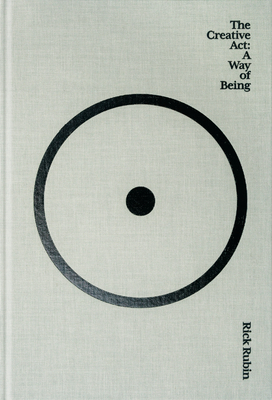
The Courage to Be Disliked: How to Free Yourself, Change your Life and Achieve Real Happiness
by Ichiro Kishimi
30 popular highlights from this book
Key Insights & Memorable Quotes
Below are the most popular and impactful highlights and quotes from The Courage to Be Disliked: How to Free Yourself, Change your Life and Achieve Real Happiness:
A healthy feeling of inferiority is not something that comes from comparing oneself to others; it comes from one’s comparison with one’s ideal self.
Do Not Live to Satisfy the Expectations of Others
It’s that you are disliked by someone. It is proof that you are exercising your freedom and living in freedom, and a sign that you are living in accordance with your own principles.
The courage to be happy also includes the courage to be disliked. When you have gained that courage, your interpersonal relationships will all at once change into things of lightness.
If one really has a feeling of contribution, one will no longer have any need for recognition from others. Because one will already have the real awareness that “I am of use to someone,” without needing to go out of one’s way to be acknowledged by others. In other words, a person who is obsessed with the desire for recognition does not have any community feeling yet, and has not managed to engage in self-acceptance, confidence in others, or contribution to others.
Your unhappiness cannot be blamed on your past or your environment. And it isn’t that you lack competence. You just lack courage. One might say you are lacking in the courage to be happy.
We cannot alter objective facts. But subjective interpretations can be altered as much as one likes. And we are inhabitants of a subjective world.
I have a young friend who dreams of becoming a novelist, but he never seems to be able to complete his work. According to him, his job keeps him too busy, and he can never find enough time to write novels, and that's why he can't complete work and enter it for writing awards. But is that the real reason? No! It's actually that he wants to leave the possibility of "I can do it if I try" open, by not committing to anything. He doesn't want to expose his work to criticism, and he certainly doesn't want to face the reality that he might produce an inferior piece of writing and face rejection. He wants to live inside that realm of possibilities, where he can say that he could do it if he only had the time, or that he could write if he just had the proper environment, and that he really does have the talent for it. In another five or ten years, he will probably start using another excuses like "I'm not young anymore" or "I've got a family to think about now
No experience is in itself a cause of our success or failure. We do not suffer from the shock of our experiences—the so-called trauma—but instead we make out of them whatever suits our purposes. We are not determined by our experiences, but the meaning we give them is self-determining.
No matter what has occurred in your life up to this point, it should have no bearing at all on how you live from now on.’ That you, living in the here and now, are the one who determines your own life.
Your life is not something that someone gives you, but something you choose yourself, and you are the one who decides how you live.
If one really has confidence in oneself, one doesn’t feel the need to boast. It’s because one’s feeling of inferiority is strong that one boasts. One feels the need to flaunt one’s superiority all the more. There’s the fear that if one doesn’t do that, not a single person will accept one “the way I am.” This is a full-blown superiority complex.
Unless one is unconcerned by other people’s judgments, has no fear of being disliked by other people, and pays the cost that one might never be recognized, one will never be able to follow through in one’s own way of living. That is to say, one will not be able to be free.
Loneliness is having other people and society and community around you, and having a deep sense of being excluded from them.
A way of living in which one is constantly troubled by how one is seen by others is a self-centered lifestyle in which one’s sole concern is with the “I.
You are the only one who can change yourself.
Three things are needed at this point: “self-acceptance,” “confidence in others,” and “contribution to others.
None of us live in an objective world, but instead in a subjective world that we ourselves have given meaning to. The world you see is different from the one I see, and it’s impossible to share your world with anyone else.
One has to stand on one’s own two feet, and take one’s own steps forward with the tasks of interpersonal relations. One needs to think not, What will this person give me? but rather, What can I give to this person? That is commitment to the community.
Suppose you have placed “doubt” at the foundation of your interpersonal relations. That you live your life doubting other people—doubting your friends and even your family and those you love. What sort of relationship could possibly arise from that? The other person will detect the doubt in your eyes in an instant. He or she will have an instinctive understanding that “this person does not have confidence in me.” Do you think one would be able to build some kind of positive relationship from that point? It is precisely because we lay a foundation of unconditional confidence that it is possible for us to build a deep relationship.
Why is it that people seek recognition from others? In many cases, it is due to the influence of reward-and-punishment education.
All you can do in regard to your own life is choose the best path that you believe in.
PHILOSOPHER: To quote Adler again: ‘The important thing is not what one is born with, but what use one makes of that equipment.
We do not lack ability. We just lack courage. It all comes down to courage.
The reason that so many people don’t really feel happy while they’re building up their success in the eyes of society is that they are living in competition.
Children who have not been taught to confront challenges will try to avoid all challenges.
Being praised essentially means that one is receiving judgment from another person as 'good.' And the measure of what is good or bad about that act is that person's yardstick. If receiving praise is what one is after, one will have no choice but to adapt to that person's yardstick and put the brakes on one's own freedom.
YOUTH: Have you become free from all forms of competition? PHILOSOPHER: Of course. I do not think about gaining status or honour, and I live my life as an outsider philosopher without any connection whatsoever to worldly competition. YOUTH: Does that mean you dropped out of competition? That you somehow accepted defeat? PHILOSOPHER: No. I withdrew from places that are preoccupied with winning and losing. When one is trying to be oneself, competition will inevitably get in the way.
But as long as one continues to use one’s misfortune to one’s advantage in order to be ‘special’, one will always need that misfortune.
Look, no matter how much you want to be Y, you cannot be reborn as him. You are not Y. It's okay for you to be you. However, I am not saying it's fine to be 'just as you are'. If you are unable to really feel happy, then it's clear that things aren't right just as they are. You've got to put one foot in front of the other, and not stop.


